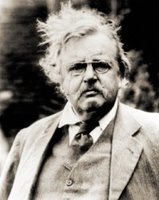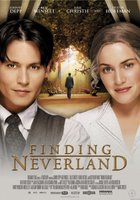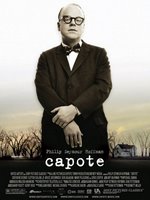Recently I had the privilege to speak at a conference organised by the National Association for Gifted Children, Malaysia (NAGCM). I was among three speakers who addressed issues pertaining to teaching children with high potential – ChiPs they call them. These are kids with intellectual or creative abilities that are beyond most children their age. In some ways all kids have high potential, but there are the exceptional ones who are so gifted adults are often tempted to call them geniuses.My topic was Educating CHiPs Outside The Public Education System, by virtue of the fact that I was a homeschooling parent (whose children are no geniuses, by the way). The truth is Malaysian schools have not done much to nurture CHiPs, much less to identify these individuals. This is sad. Dr Haniz Ibrahim, an education ministry official involved in policy planning admitted that for a long time the government had been focussing on the learning disabled. He apologised that he knew very little about giftedness and was glad to be working with NAGCM to do more for these unique individuals, which according to some estimates number two in a hundred children in Malaysia. Better late than never I suppose.
The other speaker Dr Inderbir Kaur Sandhu an Educational Psychologist (Gifted Education), went to great length to highlight the urgency in identifying and providing the necessary facilities to maximise these children’s potential before we lose them to social pressures and negative influences. It was regrettable that even though studies after studies supported specialised education CHiPs, ministry officials present that day simply couldn’t appreciate that conventional schools in Malaysia were not helping these children to blossom.
There was a lot of talk about teacher training, accelerated classes, holistic education, enrichment programmes, etc but the fact remains that schools as they are today are terribly inadequate. It’s a paradox - as a parent from the floor pointed out - that while the education system is ill-equipped to meet such diverse needs (the learning disabled and the highly gifted), schooling is mandatory for all children in the primary level. We not only do not have the physical resources (schools, classrooms, equipment), we lack the relevant software - trained human resources - as well. Yet the ministry is slow or resistant to private initiatives aimed at teaching a child outside the mainstream during the critical first 12 years.
In my talk I pointed to legislations in neighbouring countries (Thailand and Singapore, for instance) that acknowledged homeschool as a viable alternative. Although the number is small their education ministries (especially Singapore) have shown great latitude towards parents who want to homeschool and who are prepared to make great sacrifices to see it through. However, homeschool is still controversial in Malaysia, and few parents I know have received exemptions to educate their own children at home since compulsory primary schooling became law in 2002. Here’s what I said in response:
"With due respect to the Ministry of Education, I believe that is a great pity. Parents homeschool for a variety of reasons. Particularly for children with high potential – intellectual or creative – homeschooling provides these children an environment that respects and accepts them, and thus helps them blossom.
The reason is simple: conventional schooling despite its good intentions and good work, generally assumes that all children are the same, with the same educability. But those of us who have read Howard Gardner appreciate that there are different kinds of intelligences because all children are not the same. Noted pediatrician Brazelton and child psychiatrist Greenspan have co-authored a book called The Irreducible Needs of Children where the need to tailor developmental experiences to individual differences is cited as critical to learning success.
Bright children including gifted ones especially are different from other children. And all gifted children are different from other gifted children. Any parent can tell you that. But like all children, even gifted ones need assistance and nurturing if they are to excel.
Homeschool is a viable option that allows a child to be educated according to his or her own pace, in any variety of ways that match a child’s teachability or learning style."
I closed by expressing delight that the government had at long last begun to explore ways to accommodate children with exceptional needs and working with NGOs such as NAGCM was a step in the right direction. But I also made a plea for liberality: "Exceptional children such as these individuals need different training, and there is nothing wrong with that. One size does not fit all. Society is poorer if we level everyone into sameness. If a child is unable to fit in, the MOE can do parents a great service by providing the appropriate facilities such as those it has started to do, and by supporting or endorsing alternatives such as educating a child at home.
Beyond merely helping a child achieve his or her full potential, homeschool gives children back their childhood. But one of the greatest pleasures to me is seeing how homeschooling has helped us grow strong as a family. And we all agree that strong families make a strong nation."
Interesting link:
Gifted pupils scheme has little impact (Guardian)


